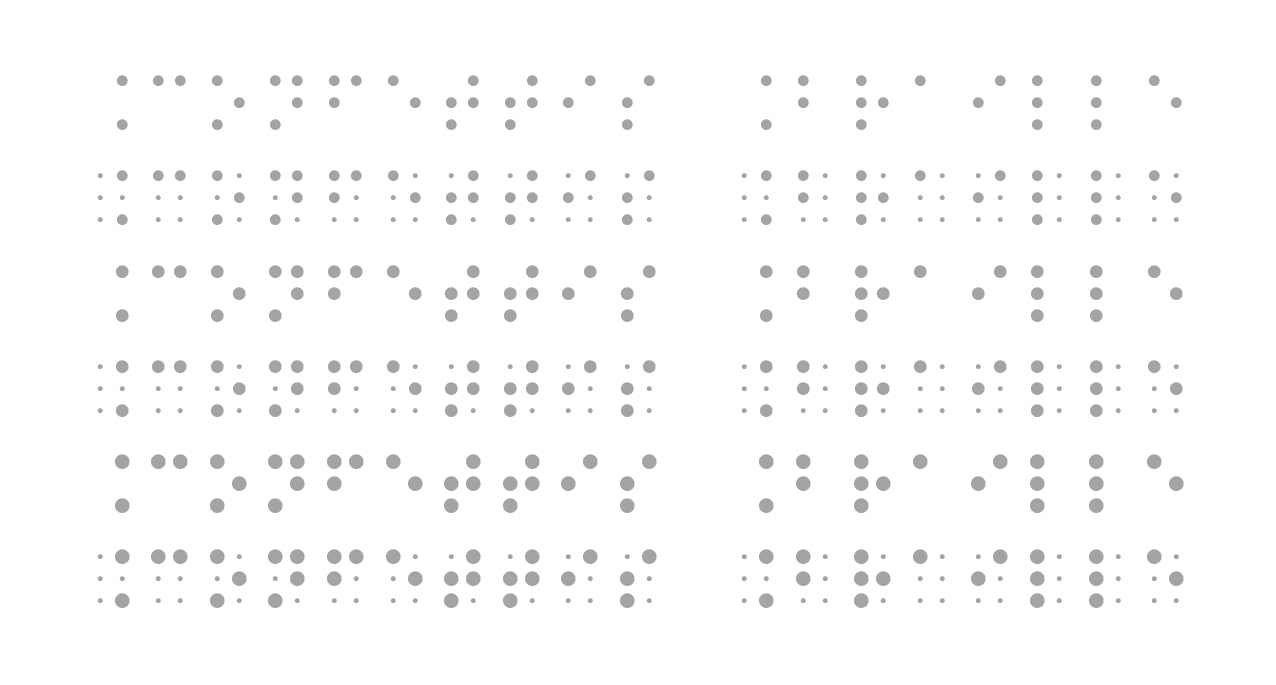
Pdf specimen of the typeface Confettis Braille

Pdf specimen of the typeface Confettis Braille
Braille is a relief writing system used by blind or visually impaired people. Invented in the early nineteenth century by Louis Braille,
it is designed on a vertical grid of 6 dots, often with the points being a raised surface. The grid of 6 dots allows 2^6 possible combinations
(64).
Braille exists today in three basic forms: embossed braille on paper (the dots are raised but not printed), resin or heat sensitive/thermographic
braille (the dots are in black or color and raised) and braille on digital tablets and 3D-printing (plastic pins or raised dots).
The Confettis Braille typeface contains 12 fonts, in 4 variants and 3 weights. The 4 variants are: braille 6, braille 8, braille 6 dots and braille 8 dots.
The typeface contains the 256 possible combinations in Unicode, in the 6 and 8 dot versions, which means it can be set in all languages using braille.
However, as braille varies for each language, priority was given to French braille setting on the AZERTY keyboard with matching Latin-to-braille
glyphs available for rapid text setting.
If you want a variant of the typeface optimized for your language or for your specific needs, you can contact us.
Beware of the toxic fumes when using resin, heat sensitive thermographic braille or 3D-printing! Whenever possible, use embossed braille on paper.
Designer: Jonathan Fabreguettes
Thanks to Mark Jamra for his editorial assistance with this text.
NEWSLETTER
MASTODON
CONTACT